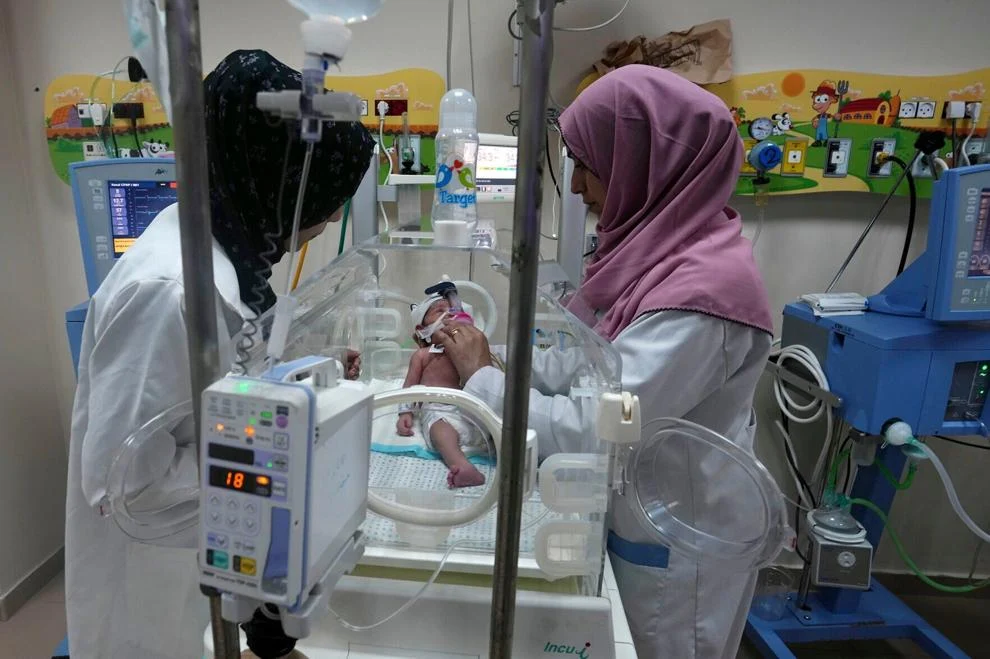As Israeli airstrikes and blockades in Gaza continue, a dire humanitarian crisis is unfolding, with pregnant women facing challenges. Israel’s restrictions on access to clean water, food, and essential medical supplies have left approximately 120,000 pregnant women in Gaza in a perilous situation.
According to a report by the United Nations Population Fund (UNFPA), the situation is dire, with around 160 women giving birth every day amidst the chaos and fighting.
One anonymous Gazan woman shared her fear, stating, “Every time there is bombing, I am terrified. My legs are paralyzed, I can’t walk, I can’t move, especially since I have children and I need to get up to run so that they stay safe. I fear for them and my unborn child.”
Another expecting mother, due this month, described her grim situation: “I sleep on the streets. My chest hurts, I have a runny nose and cough. There is no water at all. We try to wash our food, but the water is not clean. The most pressing issue right now is to clean the toilets.”
In addition to the scarcity of basic necessities, difficulties with menstrual hygiene have worsened, forcing women to resort to chemical solutions to delay their periods due to the unavailability of sanitary products.
Midwives in the region have raised alarms about the increasing risk of stillbirths, newborn deaths, and maternal mortality due to five critical factors: hemorrhage, infection, ruptured ectopic pregnancies, and untreated pre-eclampsia and eclampsia. Pregnant women are at risk of not receiving necessary treatment.
Videos from international media outlets and independent journalists covering the Gaza crisis show pregnant women in hospitals being forced into normal deliveries because resources for cesarean sections are unavailable. Some women are losing their lives due to post-birth blood loss, while many are experiencing seizures during pregnancy due to the ongoing trauma of war.
Alixandra Bacon, a registered midwife and co-leader of global and international health at the University of British Columbia, stressed the urgent need for skilled healthcare providers and access to life-saving medications. She said, “In all of those cases, you need not only a healthcare provider, but you might need electricity, you need clean running water — and access to all of those things has been stripped away at this time.”
The International Federation of Midwives has also pointed out that Gazan women face a higher likelihood of experiencing sexual violence, unintended pregnancies, and exposure to sexually transmitted diseases in times of conflict.
International law, including the Fourth Geneva Convention, mandates that healthcare facilities and personnel striving to save civilian lives should be safeguarded and left unharmed during times of war. However, healthcare workers in Gaza, including midwives, have chosen to delay their evacuation to assist mothers during pregnancy and childbirth, putting themselves in danger.
Dr. Yara M Asi, an assistant professor at the University of Central Florida’s School of Global Health Management, who has collaborated with Amnesty International, has been documenting healthcare challenges in the occupied Palestinian territory. She reported receiving distressing updates from colleagues and students in Gaza, stating, “The updates are harrowing. Hospitals are getting a thousand new patients per day, many with traumatic injuries. They’re running out of basic dressing and gauze, using cloths and rags and blankets to tourniquet people’s wounds. I’ve heard from physicians that they’re performing emergency surgeries without anaesthetics because they don’t have any.”






























































